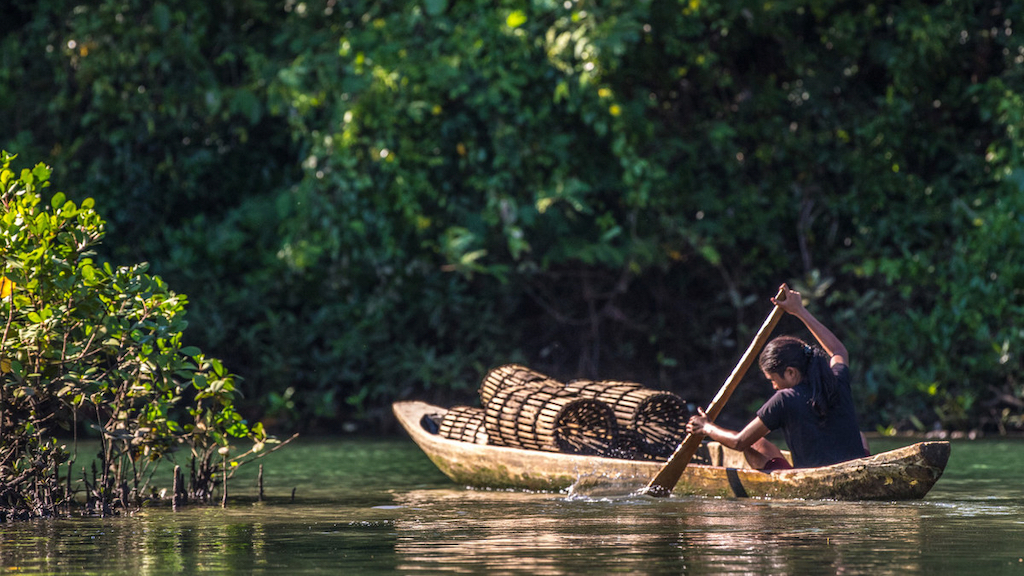The climate crisis and development challenges pose a mutually reinforcing threat to the growth prospects of Pacific Island Least Developed Countries(LDCs) and need to be addressed together.
This was a key observation made by participants at a recent Global Environment Facility regional workshop held in the Solomon Islands which focused on enhancing the resilience of the most economically vulnerable of the Pacific Island countries on the climate change frontline.
Kiribati, Solomon Islands, Timor-Leste and Tuvalu face the same challenges as all other Least Developed Countries in their need to tackle average low incomes while confronting severe structural impediments to sustainable development. At the same time, they are buffeted by the climate effects most keenly felt by Pacific Island nations. Tropical storms, rising sea levels, and encroaching salinity impede development paths by impacting climate-sensitive industries, such as fishing and tourism, which are crucial to generating national growth.
Melchior Mataki, Solomon Islands’ Permanent Secretary, Minister of Environment, Climate Change, Disaster Management, and Meteorology highlighted during the workshop on 26 – 29 September how these four Pacific Least Developed Countries need to tackle climate change and development challenges together.
“Unless you address the development imperative, it is very difficult to address climate change adaptation and resilience meaningfully,” he said.
Pointing to the existential threat climate change already poses for some countries, Mataki said increasing numbers of Pacific Island people are being forced to leave their homes, so that in the “lifetime of a young Solomon Islander, islands have gone underwater, and people have had to move from islands that were inhabitable before.”
Recent World Bank research has found that a combination of climate effects and social factors, such as poverty and health, have forced about 26,000 Solomon Islanders to relocate since 2008. On a broader scale, the UN has found that disaster and climate change is forcing more than 50,000 people in Pacific Small Island Developing States to leave their homes each year.
Daniele Violetti, Senior Director, Programmes Coordination, at the United Nations Framework Convention on Climate Change (UNFCCC), told the workshop in a recorded message that sea level rise is increasing in the Pacific at a faster rate than the global average. He added that a recent World Meteorological Organisation report detected El Nino conditions in the Pacific in July for the first time in seven years, heralding even stronger flooding, coastal erosion, and storm surges ahead.
“I don’t need to remind you of these hard realities because you already know from experience that Least Developed Countries in the Pacific are on the frontline of grappling with development challenges that are being exacerbated by climate change year by year,” said Violetti, while highlighting the need for increased climate adaptation funding.
The workshop brought together key GEF partners, including climate change adaptation experts from the participating countries, as well as representatives from environmental and civil society organizations.
The primary objective of the workshop was to ease access of the participating countries to climate finance, particularly from the GEF’s Least Developed Countries Fund (LDCF). This is one of two GEF funds specially designed to support climate adaptation action established in 2001 following guidance from the UNFCCC. The other GEF adaptation fund, the Special Climate Change Fund (SCCF), has a financing window dedicated to assisting Small Island Developing States which are not Least Developed Countries.
The workshop also provided a space for participants from the Pacific Least Developed Countries to share knowledge and experiences in adopting climate adaptation approaches. They visited a public school on the outskirts of Honiara to study first-hand one of the ways in which the Solomon Islands is strengthening climate adaptation. The participants saw how an enhanced water and storage system is improving community resilience by addressing water contamination and irregular water supply.
The workshop included interactive “learning stations” where project managers, including those from GEF agencies such as the UN Food and Agricultural Organisation (FAO) and the World Bank, provided lesson from the field on how to implement LDCF-funded climate adaptation initiatives.
Addressing the workshop by video, GEF CEO and Chairperson Carlos Manuel Rodríguez said that while the LDCF has already achieved a track record of providing climate adaptation funds in the Pacific, there is a need to speed up implementation.
“At the GEF we hear you loud and clear about the need for easier access to multilateral climate funds, and we fully agree,” he said. “That’s why we are encouraging GEF agencies to get their approved projects up and running more quickly,” added Rodríguez.
The LDCF grant amount each Least Developed Country can receive during the GEF’s current funding period running to 2026 is US$20 million, double the allocation during the GEF’s previous funding cycle leading up to 2022.
SOURCE: GEF/PACNEWS














